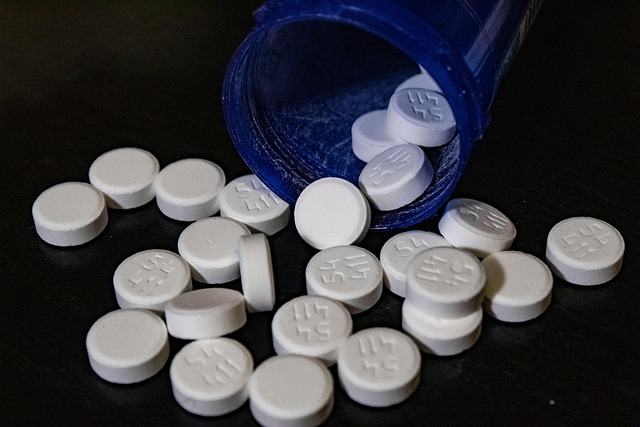Addiction among healthcare professionals is a pressing issue exacerbated by stressful work environments and regulations. Specialized medical professional rehab centers address this challenge with tailored support, including therapy, peer support, and aftercare planning. These programs mitigate addiction's impact on patient care, protect medical licenses, and foster a culture of support within the industry, especially in maintaining confidentiality. Tailored rehabilitation offers confidential environments, peer networks, and resilience-building strategies, enabling healthcare workers to regain their highest functional levels while facilitating successful returns to their careers.
Addiction affects healthcare professionals at a disproportionate rate, fueled by high-stress environments and emotional demands. Accessing specialized medical professional rehab is crucial for overcoming these unique challenges while maintaining patient safety and confidentiality. This article explores tailored rehabilitation programs, supportive network options, and the integration of professional development with personal growth, emphasizing the importance of confidential addiction treatment for medical workers in fostering resilient healing.
- Understanding the Unique Challenges of Addiction for Medical Professionals
- The Importance of Confidentiality in Healthcare Recovery
- Specialized Rehabilitation Programs Designed for Medical Workers
- Supportive Network and Peer Groups for Continuous Healing
- Integrating Professional Development with Personal Growth
Understanding the Unique Challenges of Addiction for Medical Professionals

Addiction among healthcare professionals, while often hidden, presents unique challenges due to the high-stress nature of their work and strict regulatory environment. These individuals face intense pressure to perform optimally, which can foster a culture where self-care and mental health are overlooked. As a result, medical professionals may turn to substances as a means of coping with stress, anxiety, or even emotional numbing.
The stakes are especially high when it comes to addiction within this demographic because their well-being directly impacts patient care. Therefore, access to specialized treatment programs designed specifically for their needs is crucial. Medical professional rehab centers offer tailored support, addressing not only the addiction but also providing medical license protection and fostering healthcare worker recovery through comprehensive therapy, peer support, and aftercare planning.
The Importance of Confidentiality in Healthcare Recovery

In the sensitive world of healthcare, where trust and discretion are paramount, confidentiality plays a pivotal role in facilitating effective addiction treatment for medical professionals and their colleagues. When a nurse or doctor struggles with substance abuse, seeking help is a courageous step; however, ensuring complete privacy and non-disclosure is essential to encourage this process. Medical professional rehab programs understand the delicate nature of healthcare workers’ situations and offer specialized care that respects confidentiality, fostering an environment of safety and support. This discretion not only protects the individual’s reputation but also encourages early intervention and treatment, which are crucial for successful recovery.
Maintaining confidentiality provides a secure space for medical professionals to address their addiction without fear of stigma or repercussions, allowing them to prioritize their health. It enables healthcare workers to separate their personal struggles from their professional duties, ensuring patient safety and maintaining the integrity of their medical license protection. This is especially vital in a field where stress and burnout are prevalent, as it encourages colleagues and supervisors to approach these issues with sensitivity and offer necessary support for healthcare worker recovery.
Specialized Rehabilitation Programs Designed for Medical Workers

Specialized rehabilitation programs tailored for medical professionals offer a unique and essential service to those battling addiction within the healthcare sector. These programs recognize the specific challenges faced by doctors, nurses, and other medical workers who struggle with substance abuse or behavioral addictions. The focus is on providing comprehensive treatment while ensuring medical license protection and facilitating healthcare worker recovery.
Unlike generic rehab centers, these specialized facilities understand the unique pressures and ethical considerations that healthcare professionals face. They offer confidential and supportive environments, addressing not only the addiction but also the potential career implications and legal aspects. With tailored therapy sessions, peer support groups, and aftercare planning, medical professional rehab aims to restore individuals to their highest level of function, enabling them to return to their careers with renewed focus and resilience.
Supportive Network and Peer Groups for Continuous Healing

For healthcare professionals and medical workers navigating addiction, having a supportive network is invaluable. Peer groups tailored specifically for their unique challenges offer a safe space to share experiences, gain insights, and find understanding. These networks foster a sense of belonging and encourage continuous healing by providing ongoing support outside of traditional treatment settings.
Incorporating peer groups into the recovery journey can be instrumental in preventing relapse. By connecting with peers who face similar struggles, medical professionals can access emotional support, practical advice, and encouragement. Moreover, these groups offer a platform for openly discussing the specific challenges of maintaining sobriety within the demanding healthcare profession, enhancing resilience and promoting long-term wellness.
Integrating Professional Development with Personal Growth

For healthcare professionals and medical workers grappling with addiction, integrating professional development with personal growth is a transformative path to recovery. Beyond addressing the physical aspects of rehab, effective medical professional rehab programs recognize the profound impact that stress, trauma, and high-pressure work environments can have on mental health. By incorporating strategies tailored for these unique challenges, programs like nurse addiction treatment centers offer holistic support that extends beyond the workplace.
This dual approach ensures that healthcare workers not only regain control of their lives but also develop resilience and coping mechanisms to navigate future stressors. Through workshops, counseling sessions, and peer support groups, medical professionals can engage in continuous learning and personal development, addressing underlying issues while honing skills for better mental well-being. Ultimately, this comprehensive strategy fosters a sustainable recovery that strengthens not only the individual but also enhances patient care within the healthcare sector.
For healthcare professionals struggling with addiction, seeking specialized rehabilitation programs that prioritize confidentiality is a crucial step towards recovery. These tailored programs address the unique challenges faced by medical workers, fostering an environment of trust and peer support. Through comprehensive approaches combining professional development and personal growth, medical professional rehab ensures lasting healing, enabling individuals to return to their careers with renewed focus and resilience.

